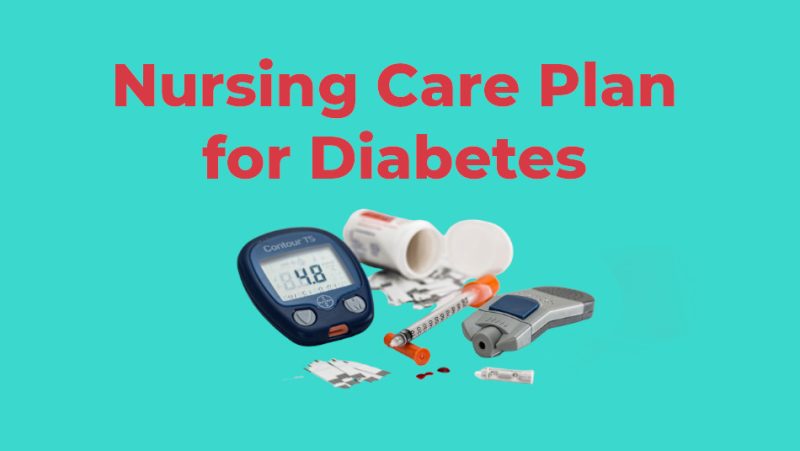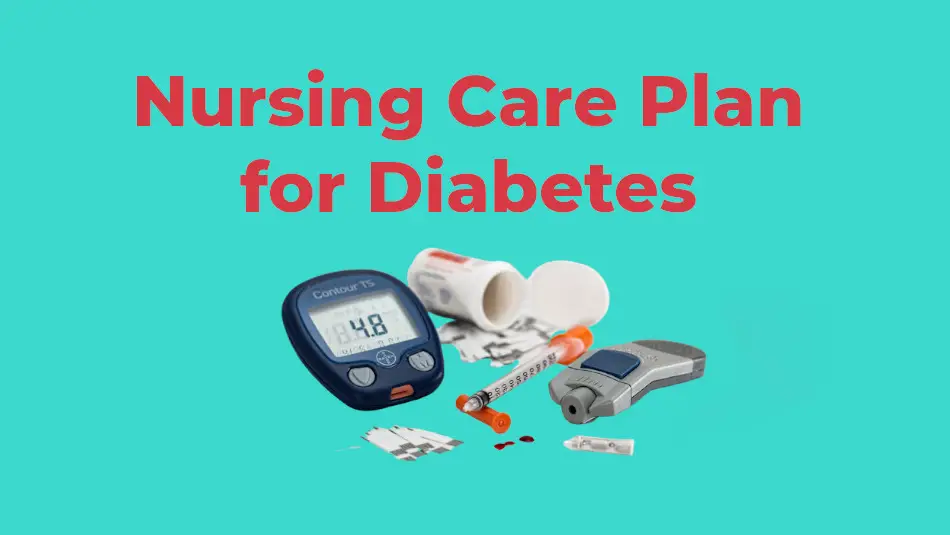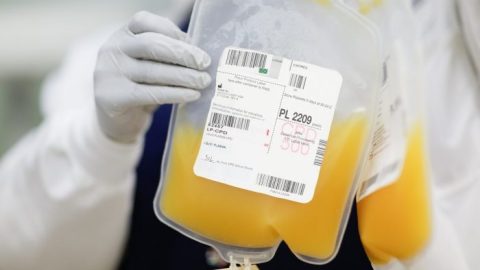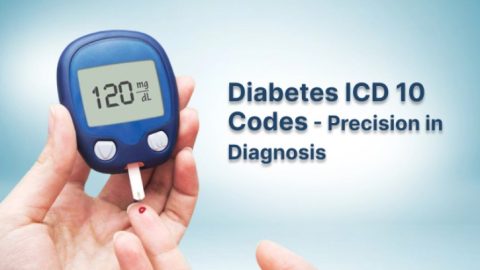Type 2 diabetes is a chronic metabolic disorder characterized by insulin resistance and high blood glucose levels. Managing this condition requires a comprehensive approach that combines medication, lifestyle adjustments, and continuous monitoring. Nurses play a crucial role in the care of type 2 diabetes patients, as they are often responsible for assessing patient needs, identifying health risks, and developing individualized care plans. One of the most important tools in this process is the nursing diagnosis, which helps nurses provide targeted and effective care.
A nursing diagnosis is more than just labeling a health condition; it involves analyzing patient data, understanding symptoms, and identifying potential or actual health problems. In type 2 diabetes, nursing diagnoses address both the physiological aspects of the disease and the psychosocial challenges patients face. Proper identification of nursing diagnoses can improve patient outcomes, prevent complications, and enhance quality of life.
This guide aims to provide a detailed overview of nursing diagnosis for type 2 diabetes patients, exploring common diagnoses, related interventions, and practical strategies to optimize care.
Understanding Type 2 Diabetes and Its Impact

Type 2 diabetes develops when the body cannot effectively use insulin or produce enough insulin to maintain normal blood sugar levels. Unlike type 1 diabetes, which is usually diagnosed in childhood, type 2 diabetes often appears in adulthood, although increasing rates of obesity and sedentary lifestyles have made it more common among younger populations.
High blood glucose levels can lead to various complications, including cardiovascular disease, neuropathy, kidney dysfunction, and vision problems. Patients with type 2 diabetes often experience fatigue, frequent urination, excessive thirst, and delayed wound healing. The chronic nature of the disease also impacts emotional and psychological well-being, as patients may struggle with adherence to treatment regimens and lifestyle modifications.
Nursing interventions in type 2 diabetes focus on both physiological and psychosocial aspects. Understanding the full impact of the disease on a patient’s life is essential for identifying appropriate nursing diagnoses. A thorough assessment includes reviewing medical history, current medications, lifestyle habits, and psychological health.
Role of Nursing Diagnosis in Type 2 Diabetes Care
Nursing diagnosis serves as a framework for providing individualized care. It allows nurses to identify problems that require attention and prioritize interventions based on urgency and patient needs. Unlike a medical diagnosis, which identifies a disease, a nursing diagnosis focuses on the patient’s responses to health conditions and the impact on daily life.
For patients with type 2 diabetes, nursing diagnoses often include concerns related to blood glucose management, nutrition, activity levels, and coping mechanisms. They also address potential risks, such as susceptibility to infections, delayed wound healing, or hypoglycemic episodes. By clearly defining these problems, nurses can develop care plans that target specific issues, monitor progress, and adjust interventions as needed.
Accurate nursing diagnoses improve communication among healthcare providers, ensuring that care is coordinated and patient-centered. They also empower patients by involving them in goal-setting and self-management strategies, which are critical for chronic conditions like type 2 diabetes.
Common Nursing Diagnoses for Type 2 Diabetes Patients
Impaired Blood Glucose Regulation
One of the most prevalent nursing diagnoses in type 2 diabetes is impaired blood glucose regulation. This diagnosis reflects the body’s inability to maintain stable blood sugar levels due to insulin resistance or insufficient insulin production. Patients may experience hyperglycemia, which can cause symptoms such as increased thirst, frequent urination, blurred vision, and fatigue.
Nursing interventions focus on monitoring blood glucose levels, educating patients on self-monitoring techniques, and collaborating with the healthcare team to adjust medications. Encouraging a balanced diet, regular physical activity, and adherence to prescribed therapies is essential. Nurses also provide guidance on recognizing early signs of hyperglycemia and implementing corrective actions promptly.
Risk for Unstable Blood Glucose
In addition to impaired regulation, patients with type 2 diabetes may face a risk of unstable blood glucose. This risk arises from factors such as irregular meal patterns, inconsistent medication use, stress, or concurrent illnesses. Unstable blood glucose can lead to hypoglycemia or hyperglycemia, both of which pose immediate health threats.
Nursing care emphasizes risk assessment and prevention. Nurses educate patients on consistent meal planning, medication adherence, and the importance of routine blood glucose checks. Providing strategies for managing stress and promoting healthy lifestyle choices also reduces the likelihood of fluctuations. Close monitoring and timely interventions are crucial in maintaining stability and preventing complications.
Ineffective Health Management
Living with type 2 diabetes requires long-term commitment to self-care, including medication adherence, diet modification, and regular exercise. Some patients struggle with these responsibilities, resulting in ineffective health management. This diagnosis highlights the gap between the patient’s ability to follow care plans and the actual implementation of recommended strategies.
Nursing interventions involve assessing the patient’s knowledge, beliefs, and readiness to change. Nurses provide education tailored to individual learning styles, address barriers to adherence, and support behavioral changes. Motivational interviewing and goal-setting techniques help patients take ownership of their health while fostering self-efficacy. Collaboration with family members or caregivers can further enhance compliance and support positive outcomes.
Risk for Infection
Type 2 diabetes compromises the immune system, making patients more susceptible to infections, particularly in the skin, urinary tract, and respiratory system. High blood glucose levels create an environment that supports bacterial growth and impairs the body’s natural defense mechanisms.
Nurses assess patients for early signs of infection, provide education on proper hygiene, and encourage timely medical attention when symptoms arise. Wound care management, vaccination recommendations, and preventive strategies are integral components of care. By addressing this risk proactively, nurses can minimize complications and promote overall health.
Knowledge Deficit
A knowledge deficit is a common nursing diagnosis in type 2 diabetes, reflecting insufficient understanding of the disease, treatment plan, and self-care practices. Patients may lack awareness of the importance of blood glucose monitoring, dietary choices, or exercise routines.
Nurses play a central role in bridging this knowledge gap. Educational interventions include teaching patients how to monitor blood glucose, recognize symptoms of hypo- and hyperglycemia, and adjust lifestyle behaviors accordingly. Providing written materials, interactive demonstrations, and ongoing support helps reinforce learning and promotes long-term adherence to care plans.
Developing an Effective Nursing Care Plan
Creating a care plan for type 2 diabetes involves combining assessment data, nursing diagnoses, and individualized interventions. The plan should address both immediate health concerns and long-term management goals. Nurses prioritize problems based on severity and potential impact on patient health.
For example, a patient experiencing frequent hyperglycemia may require immediate interventions to stabilize blood glucose levels. At the same time, long-term goals such as improving diet quality, increasing physical activity, and enhancing self-management skills are incorporated. Collaboration with other healthcare providers, including dietitians, endocrinologists, and physical therapists, ensures a comprehensive approach.
Documentation of the care plan is essential for continuity of care. Clear records of nursing diagnoses, interventions, patient responses, and progress allow other team members to provide consistent and coordinated care. Regular evaluation and modification of the plan ensure it remains effective as patient needs evolve.
Patient Education and Lifestyle Modifications
Education is a cornerstone of nursing care for type 2 diabetes. Patients must understand the relationship between blood glucose levels, diet, exercise, and medication to effectively manage their condition. Nurses provide guidance on meal planning, carbohydrate counting, portion control, and the importance of balanced nutrition.
Physical activity is equally important in regulating blood glucose and improving overall health. Nurses encourage patients to engage in moderate-intensity exercise, such as walking or swimming, while considering individual limitations. Education also extends to recognizing signs of hypo- and hyperglycemia, managing stress, and understanding the effects of alcohol or medications on blood glucose.
Lifestyle modifications require ongoing support and reinforcement. Nurses monitor progress, celebrate achievements, and address challenges. By empowering patients with knowledge and practical strategies, nurses help them achieve better control of their condition and reduce the risk of complications.
Psychosocial Considerations
Type 2 diabetes is not only a physical condition but also a source of emotional and psychological stress. Patients may experience anxiety, depression, or frustration related to disease management. Social support and coping mechanisms play a crucial role in treatment adherence and overall well-being.
Nurses assess psychosocial factors, including family dynamics, cultural beliefs, and mental health status. Interventions may involve counseling, stress management techniques, and connecting patients with support groups. Encouraging open communication and fostering a therapeutic nurse-patient relationship enhances trust and engagement in care.
Addressing psychosocial needs is integral to nursing diagnosis and care planning. Recognizing emotional challenges allows nurses to provide holistic care that addresses both physical and mental health, ultimately improving patient outcomes.
Monitoring and Follow-Up
Continuous monitoring is essential in managing type 2 diabetes. Nurses regularly assess blood glucose levels, vital signs, weight, and other health indicators. Monitoring also includes evaluating the effectiveness of interventions and adjusting care plans as needed.
Follow-up care ensures that patients maintain progress and address new challenges promptly. Nurses schedule regular check-ins, provide ongoing education, and support adherence to lifestyle modifications and medication regimens. This proactive approach reduces the risk of complications and promotes long-term health.
In addition, nurses educate patients on recognizing warning signs that require immediate medical attention. By combining monitoring, education, and timely intervention, nurses empower patients to manage their condition effectively and independently.
Conclusion
Nursing diagnosis is a vital component of comprehensive care for type 2 diabetes patients. By identifying physiological and psychosocial problems, nurses develop targeted care plans that improve outcomes and enhance quality of life. Common nursing diagnoses, including impaired blood glucose regulation, risk for infection, knowledge deficit, and ineffective health management, guide interventions and monitoring strategies.
Effective nursing care involves patient education, lifestyle modifications, psychosocial support, and continuous follow-up. Through collaboration, individualized planning, and proactive intervention, nurses help patients achieve better control of their condition, prevent complications, and maintain overall well-being.
Understanding the complexity of type 2 diabetes and applying accurate nursing diagnoses ensures that care is patient-centered, evidence-based, and effective. Nurses remain central to empowering patients and supporting them on their journey toward health and stability.
FAQs about Nursing Diagnosis for Type 2 Diabetes Patients
What is a nursing diagnosis in type 2 diabetes?
A nursing diagnosis is a clinical judgment about a patient’s responses to health conditions or life processes. In type 2 diabetes, it focuses on identifying problems related to blood glucose management, self-care, nutrition, and psychosocial well-being. It guides nurses in planning and implementing individualized care.
Why are nursing diagnoses important for diabetes care?
Nursing diagnoses help prioritize patient needs, develop targeted care plans, and prevent complications. They allow nurses to address both physiological and emotional aspects of type 2 diabetes, improving patient outcomes and quality of life.
What are the most common nursing diagnoses for type 2 diabetes?
Common nursing diagnoses include impaired blood glucose regulation, risk for unstable blood glucose, ineffective health management, risk for infection, and knowledge deficit. Each diagnosis guides specific interventions and monitoring strategies tailored to the patient.
How can nurses help patients manage their diabetes effectively?
Nurses provide education on blood glucose monitoring, medication adherence, diet, and physical activity. They offer emotional support, assist with goal-setting, and ensure patients understand warning signs of hypo- and hyperglycemia. Continuous monitoring and follow-up are essential for long-term management.
Can nursing diagnoses prevent diabetes complications?
Yes. By identifying risks such as infection, unstable blood glucose, or ineffective self-care, nursing diagnoses allow early interventions. Prompt action and ongoing support reduce the likelihood of complications like neuropathy, cardiovascular disease, or delayed wound healing.
How often should nursing diagnoses be reassessed in type 2 diabetes patients?
Nursing diagnoses should be reassessed regularly, depending on the patient’s condition and response to interventions. Changes in symptoms, lifestyle, or health status may require updates to the care plan to ensure continued effectiveness.
What role do psychosocial factors play in nursing diagnoses for diabetes?
Psychosocial factors such as stress, depression, or family support significantly affect diabetes management. Nursing diagnoses consider these aspects to provide holistic care, addressing both mental and physical health needs for optimal patient outcomes.
Disclaimer: This article is for informational purposes only and is not a substitute for professional medical advice. Always consult your healthcare provider for guidance on managing type 2 diabetes.



